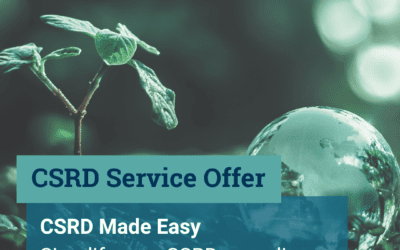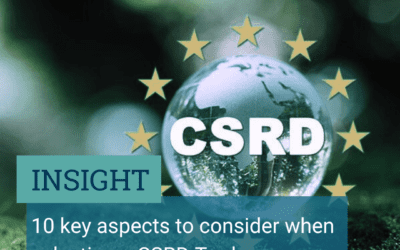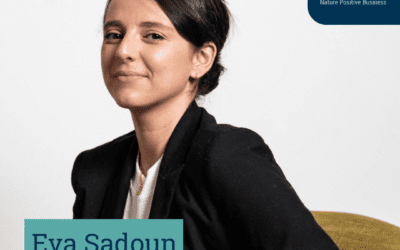
EPISODE SUMMARY

Pour ce premier épisode du podcast, je reçois Tristan Lecomte, un des pionniers du commerce équitable en tant que fondateur d’AlterEco en 1998 et aujourd’hui qui se consacre à la lutte contre le changement climatique et la déforestation, notamment via l’entreprise Pur Projet qu’il a fondée en 2008.
Le changement climatique est désormais dans toutes les têtes et toutes les entreprises sont amenées à intégrer des efforts de décarbonations dans leurs stratégie, mais qu’est ce que ça veut dire concrètement? Avec Tristan, nous parlons de sa vision de la responsabilité des entreprises, du marché du carbone, des mécanismes de compensation, d’offsetting et de insetting, de la difficulté à faire bouger les lignes et de l’urgence d’y arriver.
00:00 Intro
02:00 Qui est Tristan Lecomte ?
06:30 Le rôle de l’entreprise par rapport aux enjeux actuels
10:10 État des lieux de la prise de conscience dans les entreprises
13:00 Définition de l’impact
17:30 PUR projet : qu’est-ce que c’est et pourquoi ?
24:10 Le marché du carbone
30:40 Les mécanismes des crédits carbone
39:30 La compensation carbone
43:20 Faire du business et réduire la voilure ?
46:20 Comment aborder le dilemme concrètement
50:00 Les principaux verrous et comment les faire sauter
51:50 Pour aller plus loin, quoi lire

For the first episode of #REBOOT Business, we present a conversation between Julien Devaureix and Tristan Lecomte, one of the pioneers of fair trade and founder of AlterEco (in 1998). Today, Tristan Lecomte is dedicated to fighting climate change and deforestation, particularly with his company PUR, founded in 2008.
Climate change is now on everyone’s mind and all companies are required to integrate decarbonization efforts into their strategy, but what does that mean concretely? In this episode, we talk about his vision of corporate responsibility, the carbon market, compensation mechanisms, offsetting and insetting, the difficulty of moving the lines and the urgency of getting there.
00:00 Intro
02:00 Who is Tristan Lecomte?
06:30 The role of business in tackling today’s issues
10:10 Company’s awareness
13:00 Impact definition
17:30 What is PUR and why?
24:10 The carbon market
30:40 The carbon credits mechanism
39:30 Carbon compensation
43:20 Doing business and downsizing?
46:20 How to concretely tackle the issues
50:00 The main roadblocks and how to overcome them
51:50 What to read to get even further
For more information on PUR, you can check their website https://www.pur.co/
#Sustainability #Agro-Forestry #Business for Nature #NBS
Impact
There are physical & sistemic limits to infinite growth. Understanding those limits are key to re-invent a Sustainable Economy.
On fait de l’Insetting pour régénérer les écosystèmes, mais aussi pour générer des revenus additionnels pour les agriculteurs; parce qu’une ferme d’agro-forestry est beaucoup plus résiliente qu’une ferme qui fait de la monoculture…
Impact Labs CSRD Offer
We are happy to introduce our tailored CSRD service offer, designed to simplify compliance with the new regulations and drive impactful sustainability strategies. This way, teams can focus on reducing their footprint and developing effective nature strategies.
We streamline the CSRD reporting process with relevant tech and tools to make it as smooth and efficient as possible. Our service is designed to guide you through every step of this transformative journey.
Checklist on 10 key aspects to consider when selecting a CSRD Tool
Selecting the right technology for implementing the Corporate Sustainability Reporting Directive (CSRD) involves several key considerations to ensure compliance, efficiency, and effectiveness.
#REBOOT Business 12 – Une Economie Plus Juste
EPISODE SUMMARYAu fil des podcasts Reboot se dessine une ligne convergente vers l’urgence impérieuse de changer le système dans sa globalité. C’est...




